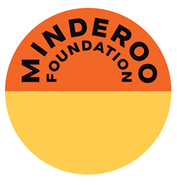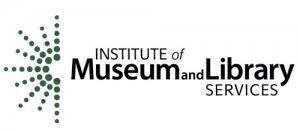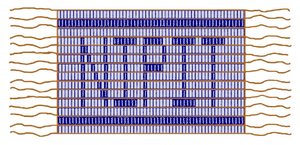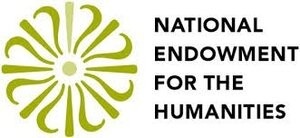ENRICH Grants & Funding
The Minderoo Foundation

The Minderoo Foundation funds the ENRICH Global Chairs initiative through the Frontier Technology Initiative. The ENRICH Global Chairs Initiative supports Indigenous and allied scholars for three months of network building, outreach, and ENRICH vision initiatives within their national and regional contexts. The ENRICH Global Chairs also build infrastructure for regional hubs through engagements and topic-based workshops and talks with researchers, agencies, and communities. The ENRICH Global Chairs for 2020/2021 are Professor Maggie Walter (University of Tasmania) and Assistant Professor Stephanie Russo Carroll (University of Arizona). The Minderoo Foundation funds two Global Chairs annually (2020-2024).
The University of Waikato

This Strategic Investment Fund project supports the development of the Biocultural Labels Initiative which focuses on how to practically encode Indigenous provenance information and cultural responsibilities into research data, including Digital Sequence Information (DSI) for genetic resources. This initiative provides a practical application of Indigenous data sovereignty principles to issues of access and benefit-sharing for genetic resources.
Institute of Museum and Library Services

Building on the national and international momentum in libraries, archives and digital repositories to implement the Traditional Knowledge (TK) and Biocultural (BC) Labels and Notices, our project Sustaining and Scaling Local Contexts: Strengthening the TK and Biocultural Labels and Notices is focused on increasing the capacity of Local Contexts to deliver the critical digital intervention of TK & BC Labels and Notices supporting the inclusion of Indigenous rights and interests within digital infrastructures.
Ministry of Business Innovation and Employment (MBIE)

MBIE has funded the Tikanga in Technology (TinT) research programme. This programme will address the challenge of data classification, provenance, and valuation when sharing Indigenous data across systems. Drawing on Māori tikanga relating to the creation, protection, and sharing of knowledge, we will develop technologies to support wise decision-making through data governance. Data science is creating an immersive digitally enabled society and the challenge for Indigenous communities is to thrive within this digital future. The opportunity lies both in embedding a Te Ao Māori conceptual lens into data analytics, artificial intelligence, machine learning, and visualisation, and in using these methods to enhance Māori distinctiveness.
Nga Pae o te Maramatanga

This internship project focuses on the development of Traditional Knowledge licenses. Traditional Knowledges Licenses differ from other licenses available in that they create the possibility for collective ownership and authority. This is one of the key features that makes them different from current Creative Commons licenses. They also have capacity to incorporate cultural protocols and expectations around future use of traditional knowledge. While the Traditional Knowledge Labels are an innovation in the field of intellectual property law, we anticipate that the Traditional Knowledge Licenses will extend this work to create a legally binding strategy for communities to maintain control and authority over important traditional knowledge that is shared in research and commercial contexts.
Science for Technological Innovation

This internship project focuses on the development of a model data sovereignty agreement for tribal users of Traditional Knowledge Labels and Biocultural Labels within the Local Contexts Hub. This will involve drafting an agreement will outline key IDSov principles around the use of data within the Local Contexts Hub, the authorized uses of the Traditional Knowledge and Biocultural Labels icons used by Iwi, and making clear the rights that each Iwi retains over the unique text that accompanies their Traditional Knowledge and Biocultural Labels.
Royal Society of New Zealand

This Catalyst Seeding Fund project ‘Te Tuakiri o te Taonga Initiative’ created the Aotearoa Biocultural Labels Working Group (ABLWG) and to introduced the Traditional Knowledge (TK) Label project to New Zealand. One of the primary responsibilities for the ABLWG has been to test the application of the new Biocultural (BC) Labels to genetic resources and genomic data in institutions.
Native Intellectual Property Intensive Training
New York University, University of Arizona, Penobscot Nation

Institute of Museums Library Services Laura Bush 21st Century Librarian Grant
The aim of this grant is to deliver enhanced education and professional training on Intellectual Property and Indigenous Data Sovereignty (IDSov) to Native American tribal librarians, archivists and museum professionals (TALMs). This training is committed to enhancing tribal capacity to address important legal and governance issues in the ongoing management and preservation of Native American collections and data that reside within community contexts as well as in cultural institutions across the United States. This training will lead to the substantive education of 60 Native librarians, archivists and museum professionals from 30 tribes in intellectual property, strategic legal negotiation and Indigenous data sovereignty over the course of this grant. Importantly, these workshops are Indigenous-led by community, legal and policy experts.
Image credit – James Eric Francis, Snr. Penobscot Nation
National Endowment for the Humanities Supplemental Funds
Division of Access Preservation

Local Contexts | Collaborative Curation Training and Education for Indigenous Collections
New York University
The primary function of the Local Contexts project is to advance respectful and culturally appropriate access to legal information and assist in the development of unique collaborative curation workflows for libraries, museums, and archives that hold collections of Indigenous cultural heritage. Collaborative curation is a collections management workflow that allows both Native and non-Native practitioners to be meaningfully involved in the processes of acquisition, arrangement, description, and display. With a specialized curriculum, ‘Intellectual Property, Rights and Native American Collections’ we have been providing direct training on: IP and Digitization for Native American collections; advanced training in the collaborative preservation and curation digital tools that we have developed – the TK Labels and Mukurtu CMS; and technical training in developing collaborative curation workflows that can accommodate IP and Indigenous cultural rights.

